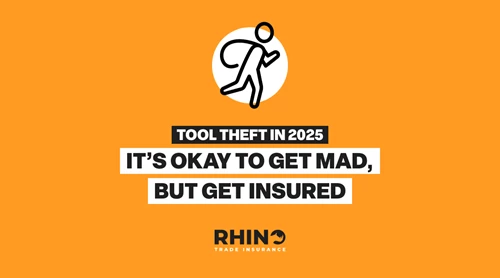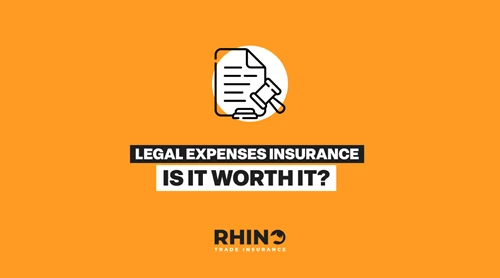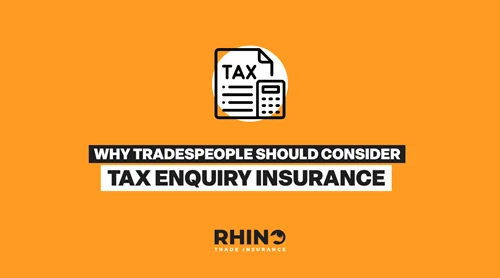As far as professions go, a career as a builder is up there with the riskiest.
The risks of construction work are almost endless. They’re also varied – with each project bringing with it a whole litany of new hazards. This is why a robust line of defence involving risk mitigation and the right insurance is so important if you make your living in the building trade.
It’s not just the obvious things like falling off a scaffold that can derail your building career, either. Let’s look at some of the risks that can threaten a builder’s livelihood.
Spotlight on Builder Risks
It would take too long to list every risk involved in construction work, so we’re just going to highlight a few. Here is an overview of typical challenges and dangers that all builders encounter.
Health and Safety Risks
Building sites are dangerous places. The risk of someone becoming injured is high – whether that’s you, a client, a partner or someone who just happens to be in the wrong place at the wrong time.
The following are all health and safety risks a builder faces in an average working day.
- Heavy lifting and manual handling
- Working at height
- Heavy machinery and power tools
- Uneven ground
- Excessive noise leading to hearing loss
- Vibrating fingers and hands from drills etc
- Exposure to chemicals
- Working with electricity
- Dust and airborne particles
Something happening on-site to a customer, partner or member of the public is a huge risk faced by every builder. Such incidents nearly always give rise to a public liability claim. It’s not just risks to other people a builder has to consider, either. Without sick pay, self-employed builders can’t make an income if they get injured themselves.
Safety precautions for construction sites are absolutely essential. It’s a good idea to work with a consultant to ensure everyone involved in the job has the correct health and safety training.
The first line of defence is a comprehensive risk assessment of every new job, considering every predicable risk possible. Then, preventative measures should be put in place, including the correct health and safety equipment and PPE.
Also, it’s important to take a regular inventory of your PPE and equipment to make sure everything is in good condition and not expired. It’s better to find out that your steel-capped boots need replacing during a stock-take than when a breeze block lands on your foot.
Theft of tools and equipment
Your tools and equipment are vital for your work as a builder. From hand tools like hammers and wrenches, to sanders, drills and circular saws, you rely on these items for every job.
Unfortunately, tool theft is rife in the UK and is constantly on the rise. Whether it’s down to an opportunistic thief or a result of organised crime, it’s surprisingly easy to steal a tradesperson’s tools from their van or in the chaos of a job site.
The best way to mitigate this risk is to always lock your tools away when not in use, and don’t leave your doors open in between trips while unloading your van. It might be worth looking into geolocation devices e.g., AirTags to track expensive items.
Damage or destruction of a partial build
Every construction job you embark on comes with the risk of something happening to the partially completed project. This could be damage to the building or extension under construction, or to the plant, materials and machinery that are on site for the purpose of the construction. These could all become damaged by things like fire, vandalism, accident or adverse weather.
Obviously, damage to or loss of an ongoing building project is going to lead to some serious financial loss (unless the site in insured – more on that later).
Building sites should be secured with, at a minimum, high fences, locks, lighting, warning signage and a CCTV system.
Advice gone wrong
Some builders provide professional guidance, designs or plans along with their construction services. You may feel confident about your expertise – but sometimes a customer or client may come up against inconvenience and/or financial loss as a result of following such advice. If this happens to you, the customer is very likely to bring a claim against your business in order to recoup their losses (they were acting on your professional advice after all).
There isn’t much you can do to mitigate this risk, as the assumption is that you’re giving the advice in good faith in the first place. Professional Indemnity Insurance is your best bet to take care of any issues after the fact.
Investigation by HMRC
Self-employed builders frequently find themselves the subject of HMRC investigations. This is because the government wants to make sure builders are representing their tax status accurately and sub-contractors are not actually ‘employees in disguise’. Random tax enquiries into tradespeople including builders has increased in recent years due to the changes to off-payroll working (IR35) rules.
A HMRC enquiry can mean tax liability charges and backdated tax bills, or a long legal bill if you choose to challenge the ruling.
Keeping thorough records, working with an accountant and having business insurance in place are all good ways to make sure that if HMRC come calling, you can prove that you’re above board.
Insurance: A Builder's Safety Net
If you’re a self-employed builder, it can be stressful to consider the many different risks to your livelihood. Risk mitigation for builders and health and safety will always be your first line of defence, so prioritise these on every single job and you can help prevent a good portion of predictable risk.
However, things can still go awry, which is why self-employed builders need insurance to act as a safety net for when things go wrong.
- Public Liability Insurance – public liability insurance for builders is absolutely essential. If someone gets injured or their property gets damaged while you’re doing your job, this insurance will cover the costs.
- Income Protection Insurance – when you’re laid up with an injury, you can’t make an income. This cover will send a monthly payment your way until you’re back on your feet.
- Personal Accident Insurance – accidents happen, and they happen to builders frequently. That’s why this insurance exists. You’ll get a lump sum to help you cover your expenses while you can’t work.
- Tools Insurance – with tool theft so common in the UK, it makes sense to insure your tools.
- Professional Indemnity Insurance – that advice you gave in good faith could lead to an unexpectedly bad outcome for your client. This insurance covers the costs they need to put everything right.
- Contractors All-Risks Cover – insuring your partially-constructed work is one of the smartest things a builder can do.
- Tax Enquiry Insurance – this insurance means a highly experienced legal expert will defend you against incorrect HMRC rulings.
Rhino Trade Insurance – we have your back
Rhino Trade Insurance for builders is designed to protect your construction business. Rhino have years of experience insuring builders and construction workers in the UK. We know what it takes to pick up those tools on a daily basis, and we know what type and level of cover you’ll need to ensure your building business is protect from all angles.
Give us a call today on 0116 350 1552 to find out what we can do to protect the business you’re building.




